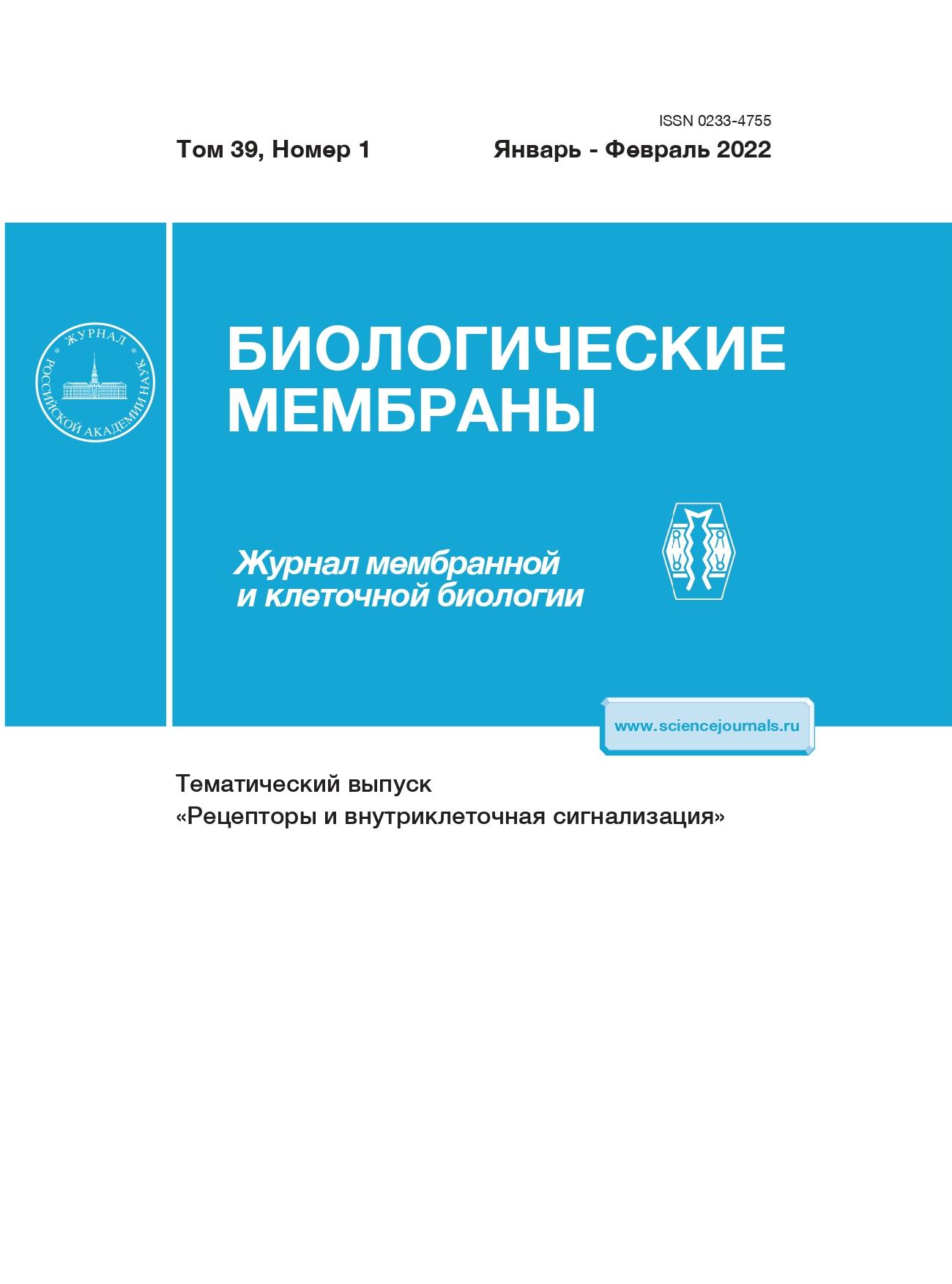
BIOLOGICHESKIE MEMBRANY
Journal of Membrane and Cell Biology

Journal of Membrane and Cell Biology
A. I. Arslanov, D. I. Silantyeva, Kh. L. Gainutdinov
Biochemistry (Moscow), Supplement Series A: Membrane and Cell Biology. 2023;17(4):264-268
Pages: 264-268
The mitochondrial permeability transition pore (MPTP) is a critical regulator of cellular fate, and its aberrant opening is implicated in various pathologies, including ischemia-reperfusion injury and metabolic disorders. While calcium is a well-established trigger, the molecular mechanisms by which metabolic intermediates, such as long-chain acylcarnitines (LCACs), induce MPTP remain incompletely understood. This study investigates the role of the mitochondrial Ca2+-independent phospholipase A2 (iPLA2), specifically the gamma isoform (iPLA2γ), in mediating LCAC-induced MPTP opening. Using isolated rat liver mitochondria, we demonstrate that LCACs significantly enhance the sensitivity of the MPTP to induction. This effect is markedly attenuated by pharmacological inhibition of iPLA2, suggesting a direct mechanistic link. Furthermore, the data indicate that iPLA2 activation by LCACs leads to the hydrolysis of cardiolipin, a key phospholipid in the inner mitochondrial membrane, which is essential for MPTP formation. These findings establish iPLA2γ as a crucial molecular component linking lipid metabolism and mitochondrial dysfunction, providing a novel therapeutic target for conditions characterized by excessive MPTP activity.